Almost All of Freshwater Bodies in Turkey Are Polluted
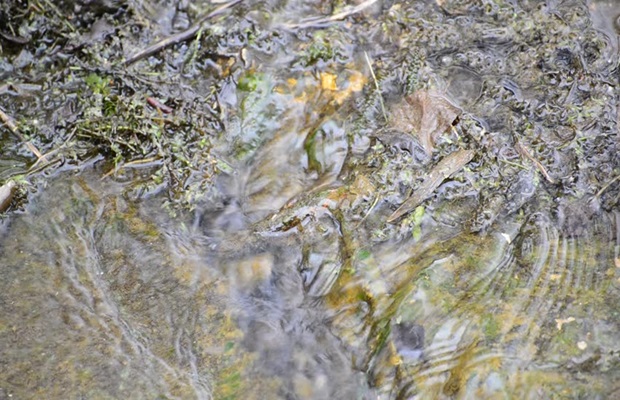
On the occasion of World Environment Day 5 June, Turkish Chamber of Environmental Engineers published a report on Turkey’s environment issues.
According to the report, only 21% of plastic package consumed can be collected, 79% of freshwater bodies are polluted, marine pollution and natural disasters caused by climate change increase.
The report was presented on 5 June by the Baran Bozoğlu, President of Turkish Chamber of Environmental Engineers, and shed a light on environmental pollution in Turkey. In accordance with “Beat Plastic Pollution”, the theme for World Environment Day 2018, the report also mentions plastic pollution in Turkey. The report shows that 8 million 612 thousand tons of plastic are consumed in different sectors, 1 million 800 thousand plastic packages are released to the market and only 384 thousand of them are collected in Turkey. Only 179 thousand tons of plastic is declared as waste.
Marine Pollution Increases
The report reveals that river basins, Buyuk Menderes, Kızılırmak, Sakarya, Susurluk, Kucuk Menderes, Gediz, Bakircayi and Ergene basins in particular- are in very poor conditions. Indicating that 79% of freshwater bodies in Turkey are polluted in Turkey, Bozoglu said: “Freshwater resources in Turkey are under serious threat. Approximately 60% these resources are not drinkable. The mentioned rivers have turned into open sewages. We don’t use water purification system and marine pollution increases, especially in Mugla, Mersin, Istanbul and Izmir.” It is also indicated in the report that more than half of (56%) 186 organized industrial sites do not have waste water treatment facility.
Air and Soil Pollution Threatens Our Health
According to the report, Turkey ranks 22 among European countries in deaths caused by indoor and outdoor air pollution. Rate in Turkey is 47 deaths in 100 thousand people. Air pollution affects Ankara, Istanbul, Adana, Amasya and Bursa the most. Primary reasons of air pollution in Turkey are residential heating, cars, thermal plants, mining and industrial companies. The report puts emphasize also on soil pollution and says that there are 24 fields in Turkey which can be hazardous. World Health Foundation (WHO) estimates that over 3 million people are hospitalized due to pesticide poisoning every year, resulting in a quarter of a million premature deaths. According to Bozoğlu’s presentation, it can be tracked how much pesticide is sold, but it cannot be tracked where and how much it is used in Turkey.
Natural Disasters Caused by Climate Change Increase
The report shows a serious increase in natural disasters from 1940 to 2016 in Turkey. This increase is caused by climate change, which is triggered by greenhouse gas emissions, and it shows itself as heavy rain, storm, hail fail and drought in Turkey. Blacksea is the region which is affected by disasters the most. According to the report, 134 flood disasters happened in 2016 in Turkey. Bozoğlu highlighted the urgent need for a climate action plan: “We experience the effects of climate change as hail fail and flood disasters in our country. Climate change limits also natural resources; decreasing water resources due to increase of greenhouse gas emissions affects agriculture and biological diversity. Paris Agreement is an important milestone to struggle climate change and being a part of it would speed up national preventions and take required measurements.”
The report mentions also noise pollution and waste problem in Turkey and makes suggestions to decision-makers.
In his presentation Bozoğlu talked also about improvements in environmental management in Turkey: “Waste storage sites, waste water treatment facilities increase in Turkey; planting works are conducted and infrastructure is reinforced. However, environmental pollution still increases. Pasture and meadow sites constituted 56% of our country’s surface area in the early years of the republic. According to 2014’s data, it declined to 19%. Integrated environmental management should be conducted in Turkey. An institution cannot be the investor, inspector and decision-maker at the same time. We need to focus on ecosystem oriented waste water management to prevent water pollution and water act should urgently be updated. Adaptation activities should be carried out in cities and rural areas as a preparation for climate change.”

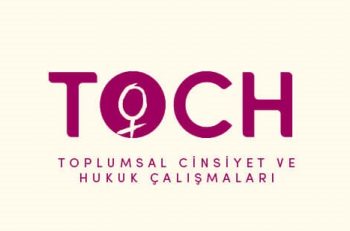
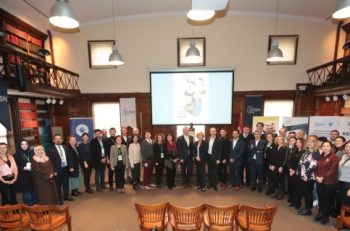

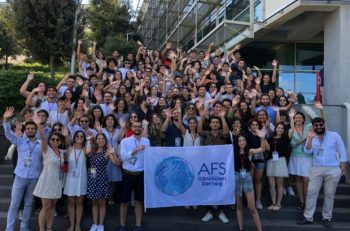

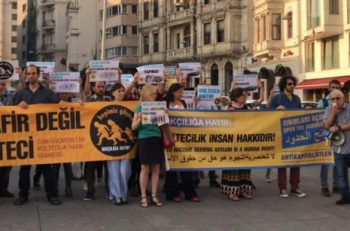

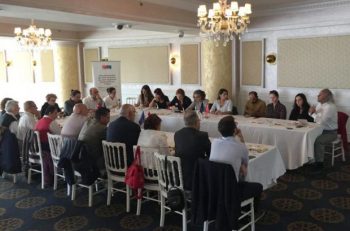

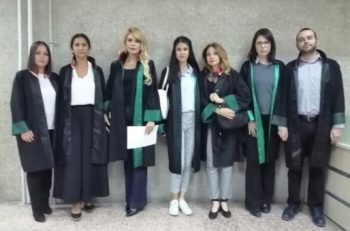



Bizi Takip Edin